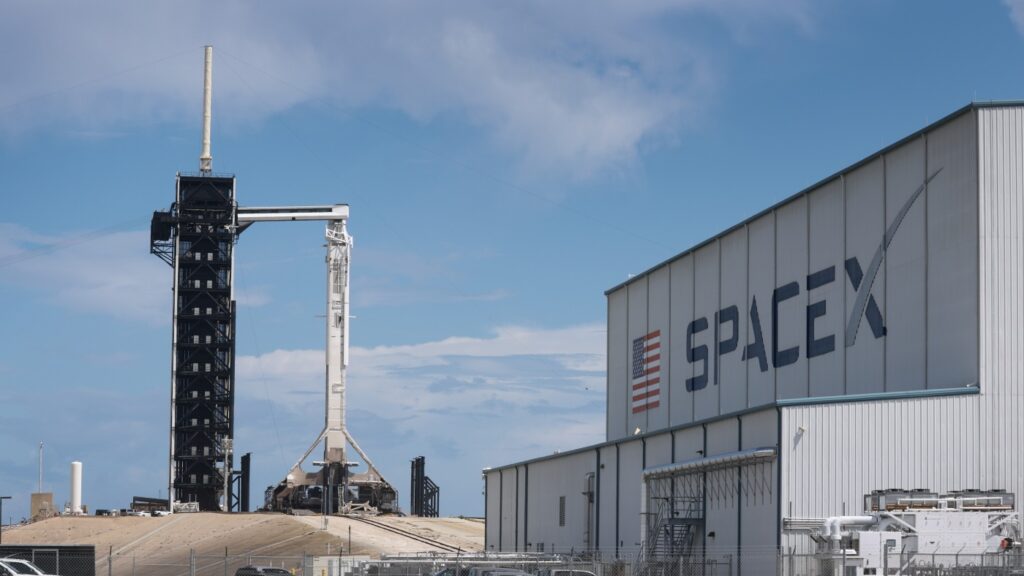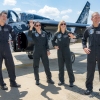
The Federal Aviation Administration has grounded SpaceX’s Falcon 9 rockets – like this one set to take the Polaris Dawn crew to orbit. The move by the FAA comes after a Falcon 9 booster rocket fell into the sea as it tried to land on an uncrewed drone ship on Wednesday.
Joe Raedle/Getty Images
hide caption
toggle caption
Joe Raedle/Getty Images
WASHINGTON — The Federal Aviation Administration has grounded SpaceX rockets, following a failure of one of the company’s Falcon 9 rocket boosters early Wednesday morning.
The grounding comes as a crew of four astronauts waits in quarantine for the launch of the Polaris Dawn mission aboard a Falcon 9. The private flight, funded by internet entrepreneur Jared Isaacman, is set to conduct the world’s first commercial spacewalk. It had already been pushed back several days due to technical issues and weather concerns.
Neither SpaceX nor the Polaris Dawn program immediately responded to NPR’s request for comment.
The booster that failed took off from Cape Canaveral Air Force Station in the early morning hours. It was part of a mission to deliver more satellites for SpaceX’s Starlink constellation, which provides internet from orbit.
The launch appeared to go smoothly: The upper stage separated from the large first stage booster rocket, and as expected the booster began to return to Earth where it was set to land on the uncrewed drone ship named “A Shortfall of Gravitas.”
But as the booster relit its engines to set down on the deck of the ship, an uncontrolled fire appeared to bellow out from its underside. Seconds later, the rocket stage tipped into the Atlantic Ocean.
This was the booster’s 23rd flight, according to the company.
In its statement the FAA said that the Falcon 9 would be grounded until the investigation was complete. “An investigation is designed to further enhance public safety, determine the root cause of the event, and identify corrective actions to avoid it from happening again,” the agency said.
This is the second grounding of the Falcon 9 rocket in recent months. The FAA grounded the rocket on July 12, after its second stage failed to relight properly during another Starlink launch. That grounding lasted around two weeks.
A similar investigation would mean a hefty delay for Polaris Dawn, which had hoped to launch as early as Friday. The investigation could also have implications for the International Space Station. NASA had hoped to send two astronauts to the station in late September aboard a Falcon 9 rocket. They would join astronauts Butch Wilmore and Suni Williams, who flew in June to the station aboard the Boeing Starliner capsule.
Just last week, NASA determined that problems with the Boeing capsule made it unsafe to use to ferry astronauts back to earth. Williams and Wilmore will rely on the SpaceX capsule arriving next month to return home in early 2025.
This article was originally published by a www.npr.org . Read the Original article here. .




